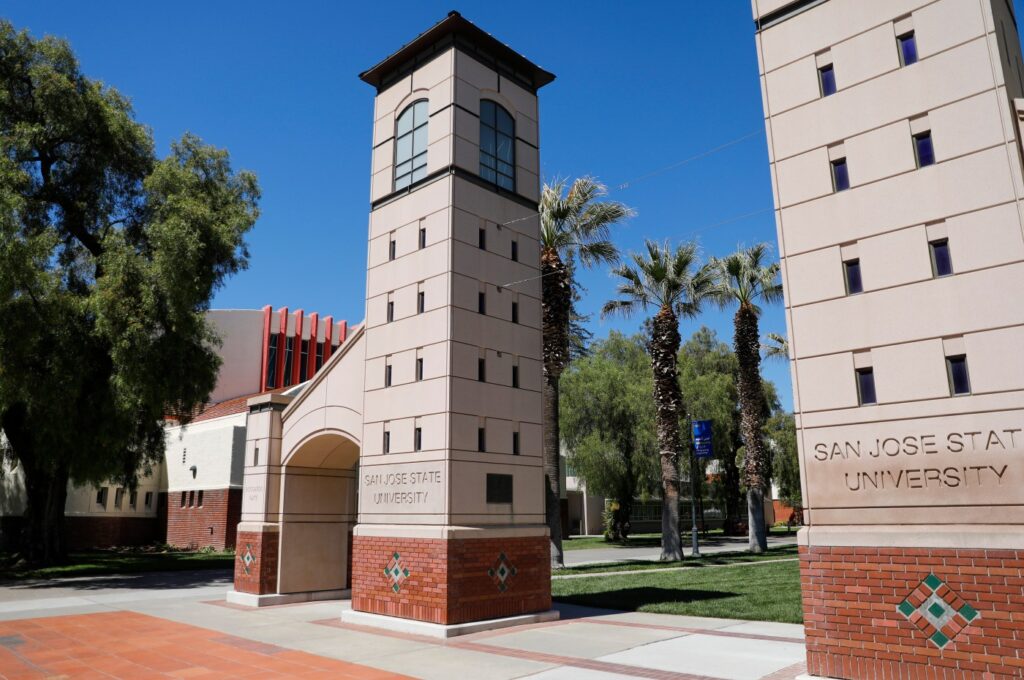Re: “ ” (Page A1, Aug. 21). As the vote on whether or not to increase tuition for all CSU students looms nearer, I would implore those making the decision to think of the students.
Think of $200 textbooks, online coursework access codes, rent hikes, economic inflation and the overall economic weight of being a student in 2023. The cost of tuition is already astronomical compared to 20 or even 10 years ago. Students face a world that threatens to leave them in debt for the rest of their lives, simply for wanting the better future that education promises.
This tuition hike threatens not only a lifelong ball and chain of debt but for many, the death of hope. Re: “ ” (Page A6, Sept. 6).
I agree with Cheriel Jensen’s Sept. 6 letter opposing the spraying of pesticides in our communities. Even if these these pesticides are nominally human-safe, they are not as tightly targeted as one might hope, and can cause significant damage and die-offs of pollinators and (ironically) mosquito predators.
Alternative long-term strategies should be considered, such as improving local conditions for insects, birds and bats that prey on mosquitos. We cannot poison our way to a healthy ecosystem. Re: “ ” (Page A12, Aug.
26). I’m writing to express our community’s urgent concern for local control over zoning, planning and building decisions. We need to re-evaluate housing legislation, putting planning power back into local hands.
This isn’t just economics; it’s vital for stable, thriving communities. State-level approaches often overlook local needs like density and environment. Involving locals in planning ensures housing that fits.
State decisions lack the personal touch of those familiar with neighborhoods. Local insights from residents, businesses and organizations shape effective policies. Restoring local decision-making encourages collaboration and innovation.
Local housing decisions breed ownership and accountability, engaging citizens and building cohesion. We can demand change, urging lawmakers to empower communities for zoning, planning and building. Let’s ensure affordable housing for all and policies that reflect each locality’s uniqueness.
Re: “ ” (Page A1, Sept. 9). To say I was disappointed to learn Nancy Pelosi is running again is an understatement.
I was hoping she would be as selfless as Barbara Boxer and Jackie Speier, step back and endorse a fresh candidate. We need younger candidates. She needs to retire.
Pelosi will be a great mentor, sharing loads of expertise and valuable advice. Here’s hoping she’ll change her mind. Re: “ ” (Page A1, Sept.
3). I couldn’t agree more with your sports columnist Dieter Kurtenbach’s views on the sad demise of our storied Pac-12 Conference. Stanford, with , is the all-time leader in NCAA championships, followed by UCLA with .
That’s Pac-12. Greed for money by other conferences (the Big-10 and Big-12) has stolen Pac-12’s crown jewels, made a mockery of sportsmanship, and won over cooperation and collegiality. Cal and Stanford in the ACC? I’ve heard of people (like Gov.
Ron DeSantis) rewriting history, but rewriting geography? Give me a break. It was encouraging to see readers’ solutions to today’s problems: water scarcity, overpopulation and climate change. The best solution is one that is often overlooked: a food system based on whole-plant foods.
Animal agriculture plays a huge role in the destruction of our planet: pollution of our air, land and water, species extinction, deforestation, ocean depletion and dead zones, and a warming climate responsible for drought, flooding, fire, and other extreme weather events. By eating plant-based, we can reduce our greenhouse gas emissions by up to 73% ( ), cut water usage by half ( ), and reduce our farmed land by a whopping 77% ( ), allowing for rewilding. While livestock takes up most of the world’s agricultural land, it only produces 18% of the world’s calories and 37% of total protein.
Healing our planet and ourselves depends on a massive shift to plant-based foods. .
From: mercurynews
URL: https://www.mercurynews.com/2023/09/12/letters-1406/
